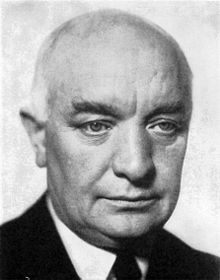Per Albin Hansson
| Per Albin Hansson | |
|---|---|
 |
|
| 23rd Prime Minister of Sweden | |
|
In office 24 September 1932 – 19 June 1936 (3 years, 269 days) |
|
| Monarch | Gustaf V |
| Preceded by | Felix Hamrin |
| Succeeded by | Axel Pehrsson-Bramstorp |
|
In office 28 September 1936 – 6 October 1946 (10 years, 8 days) |
|
| Monarch | Gustaf V |
| Preceded by | Axel Pehrsson-Bramstorp |
| Succeeded by | Östen Undén (acting) |
|
Minister for Defence Ministers for War between 10 March – 30 June 1920 |
|
|
In office 10 March 1920 – 27 October 1920 |
|
| Prime Minister | Hjalmar Branting |
| Preceded by | Erik Nilsson |
| Succeeded by | Carl Gustaf Hammarskjöld |
|
In office 13 October 1921 – 19 April 1923 |
|
| Prime Minister | Hjalmar Branting |
| Preceded by | Otto Lybeck |
| Succeeded by | Carl Malmroth |
|
In office 18 October 1924 – 7 June 1926 |
|
| Prime Minister | Hjalmar Branting, Rickard Sandler |
| Preceded by | Carl Malmroth |
| Succeeded by | Gustav Rosén |
| Personal details | |
| Born |
28 October 1885 Malmö, Sweden |
| Died | 6 October 1946 (aged 60) , Sweden |
| Political party | Social Democrats |
| Spouse(s) | Elisabeth Fryckberg |
| Cabinet | Cabinet of Per Albin Hansson I, II, III, IIII |
| Religion | Lutheran (Church of Sweden) |
Per Albin Hansson (28 October 1885 – 6 October 1946), was a Swedish politician, chairman of the Social Democrats from 1925 and two-time Prime Minister in four governments between 1932 and 1946, governing all that period save for a short-lived crisis in the summer of 1936, which he ended by forming a coalition government with his main adversary, Axel Pehrsson-Bramstorp. During World War II, in which Sweden maintained a policy of neutrality, he presided over a government of unity that included all major parties in the Riksdag. Forging the Social Democratic grip on Swedish politics that would last throughout the century, Hansson left an astounding legacy on his party as well as creating the "Swedish model" that remains largely intact to date, including a strict policy of neutrality, a wide-stretching welfare state through parliamentary legislation, and reformist social corporatism rather than Marxist nationalization of the means of production. Following the war, Hansson formed a Social Democratic cabinet enjoying absolute majority in the Riksdag before succumbing to a heart attack on his way home from work late at night on 6 October 1946.
During Hansson's fourteen years as Prime Minister of Sweden, a wide range of reforms were realised, such as subsidised dental care, income-tested child allowances for invalidity pensioners and widows, maternity allowances through voluntary sickness insurance, and a 1935 law that introduced state subsidies for the construction of apartment houses for families with three of more children, combined with housing allowances for families with more than two children living in these houses.
Per Albin Hansson was born in Kulladal, a neighborhood in Malmö, Sweden on 28 October 1885.
...
Wikipedia
